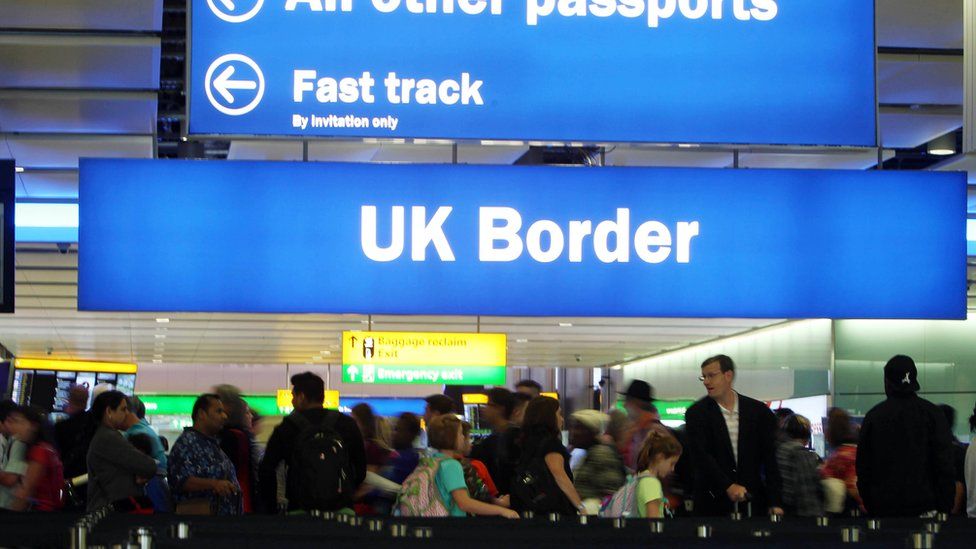ARTICLE AD BOX
 Image source, PA Media
Image source, PA Media
Immigration will be important for the UK economy in the years ahead but the government still wants to bring numbers down, Chancellor Jeremy Hunt has said.
Official forecasts say net migration in 2026 will be 205,000, higher than previously predicted.
The Office for Budget Responsibility said it would help "offset slower growth in productivity".
Mr Hunt said the UK needed migrants but he wants to improve skills "at home" to lower dependence on foreign workers.
He also said Brexit had created trade barriers with the EU, but ruled out re-joining the single market.
The chancellor was speaking a day after delivering his Autumn Statement in which he announced tax rises and a squeeze on public spending.
He defended his actions arguing that tough decisions were needed to tackle inflation.
Mr Hunt told BBC Radio 4's Today programme migration had a "very positive" effect on the economy but stressed the need to improve the skills of people already in the country in order to reduce the levels of migration "we need".
"That is why education is a big priority," he said.
The Department for Education was one of the few government departments to receive additional funding in Mr Hunt's Autumn Statement, getting an extra £2.3bn for schools in England.
The Conservatives have long promised to reduce net migration, with former Prime Minister David Cameron pledging - although ultimately failing - to get numbers down to the tens of thousands.
In October, when Liz Truss was prime minister, Home Secretary Suella Braverman said the target was her "ultimate aspiration" but added "we've got to take it slowly".
Prime Minister Rishi Sunak has also said he wants to get migration down "over time", but insists his focus is on tackling illegal migration.
Speaking on Friday morning, the chancellor argued that rising levels of illegal migration would undermine the public's support for legal migration - which he said was a positive both for the economy and society.
Also appearing on the Today programme, Richard Hughes - head of the Office for Budget Responsibility - explained that the government forecaster had revised its estimates for migration up, after an expected drop in numbers had not materialised.
He said the OBR had anticipated numbers would fall following the creation of a post-Brexit immigration regime.
He added that despite new rules, the UK was still letting in a net level of over 200,000 people a year and that the OBR therefore predicted net migration levels would stand at 205,000 from 2026, rather than earlier estimates of 129,000.
The OBR still expects net migration to fall over the next five years, but from a higher base than it originally expected.
In its forecast which accompanied Mr Hunt's Autumn Statement, the OBR said Brexit had had a "significant adverse impact" on UK trade and predicted that the UK's trade intensity would be 15% lower than if the UK had remained in the EU.
The chancellor was asked if re-joining the EU's single market - a free trade area which removes tariffs and taxes on trade between member countries - could boost growth.
Mr Hunt responded that "having unfettered trade with our neighbours and countries all over the world is very beneficial to growth"
He expressed the hope that over the coming years the UK would be able to remove trade barriers with the EU, while remaining outside the single market.
"It will take time," he added.
He argued that re-joining the single market was not "the right way to boost growth" and would be going against "what people voted for" in the Brexit referendum.
The single market is a free trade area which removes tariffs and taxes on trade between member countries.

 2 years ago
26
2 years ago
26








 English (US) ·
English (US) ·